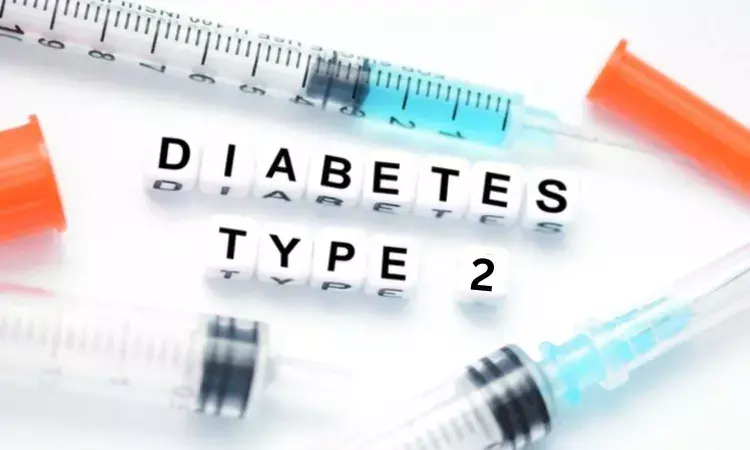- Home
- Medical news & Guidelines
- Anesthesiology
- Cardiology and CTVS
- Critical Care
- Dentistry
- Dermatology
- Diabetes and Endocrinology
- ENT
- Gastroenterology
- Medicine
- Nephrology
- Neurology
- Obstretics-Gynaecology
- Oncology
- Ophthalmology
- Orthopaedics
- Pediatrics-Neonatology
- Psychiatry
- Pulmonology
- Radiology
- Surgery
- Urology
- Laboratory Medicine
- Diet
- Nursing
- Paramedical
- Physiotherapy
- Health news
- Fact Check
- Bone Health Fact Check
- Brain Health Fact Check
- Cancer Related Fact Check
- Child Care Fact Check
- Dental and oral health fact check
- Diabetes and metabolic health fact check
- Diet and Nutrition Fact Check
- Eye and ENT Care Fact Check
- Fitness fact check
- Gut health fact check
- Heart health fact check
- Kidney health fact check
- Medical education fact check
- Men's health fact check
- Respiratory fact check
- Skin and hair care fact check
- Vaccine and Immunization fact check
- Women's health fact check
- AYUSH
- State News
- Andaman and Nicobar Islands
- Andhra Pradesh
- Arunachal Pradesh
- Assam
- Bihar
- Chandigarh
- Chattisgarh
- Dadra and Nagar Haveli
- Daman and Diu
- Delhi
- Goa
- Gujarat
- Haryana
- Himachal Pradesh
- Jammu & Kashmir
- Jharkhand
- Karnataka
- Kerala
- Ladakh
- Lakshadweep
- Madhya Pradesh
- Maharashtra
- Manipur
- Meghalaya
- Mizoram
- Nagaland
- Odisha
- Puducherry
- Punjab
- Rajasthan
- Sikkim
- Tamil Nadu
- Telangana
- Tripura
- Uttar Pradesh
- Uttrakhand
- West Bengal
- Medical Education
- Industry
Early breakfast may reduce risk of developing type 2 diabetes

Researchers at ISGlobal, an institution supported by "la Caixa" Foundation have found in a study of more than 100,000 participants in a French cohort that early breakfast may reduce the risk of developing type 2 diabetes. Eating breakfast after 9 a.m. increases the risk of developing type 2 diabetes by 59% compared to people who eat breakfast before 8 a.m. The results show that we can reduce the risk of diabetes not only by changing what we eat, but also when we eat it.
Type 2 diabetes is associated with modifiable risk factors, such as an unhealthy diet, physical inactivity and smoking. But another factor may be important: the time at which we eat. "We know that meal timing plays a key role in regulating circadian rhythms and glucose and lipid control, but few studies have investigated the relationship between meal timing or fasting and type 2 diabetes," says Anna Palomar-Cros, ISGlobal researcher and first author of the study.
In this study, a team from ISGlobal joined at team from INSERM in France to investigate the association between meal frequency and timing and the incidence of type 2 diabetes among 103,312 adults (79% women) from the French NutriNet-Santé cohort. Participants filled in online dietary records of what they ate and drank over a 24-hour period on 3 non-consecutive days, as well as the timing of their meals. The research team averaged the dietary records for the first two years of follow-up and assessed the participants' health over the following years (an average of seven years).
Early breakfast, early dinner
There were 963 new cases of type 2 diabetes during the study. The risk of developing the disease was significantly higher in the group of people who regularly ate breakfast after 9 a.m., compared to those who ate breakfast before 8 am. "Biologically, this makes sense, as skipping breakfast is known to affect glucose and lipid control, as well as insulin levels," explains Palomar-Cros. “This is consistent with two meta-analyses that conclude that skipping breakfast increases the risk of type 2 diabetes,” she adds.
The research team also found that a late dinner (after 10 pm) seemed to increase the risk, while eating more frequently (about five times a day) was associated with a lower disease incidence. In contrast, prolonged fasting is only beneficial if it is done by having an early breakfast (before 8am) and an early dinner.
"Our results suggest that a first meal before 8 am and a last meal before 7 pm may help reduce the incidence of type 2 diabetes," concludes Manolis Kogevinas, ISGlobal researcher and co-author of the study. In fact, the same ISGlobal team had already provided evidence on the association between an early dinner and a lower risk of breast or prostate cancer.
Taken together, these results consolidate the use of chrononutrition (i.e. the association between diet, circadian rhythms and health) to prevent type 2 diabetes and other chronic diseases.
Reference:
Anna Palomar-Cros and others, Associations of meal timing, number of eating occasions and night-time fasting duration with incidence of type 2 diabetes in the NutriNet-Santé cohort, International Journal of Epidemiology, 2023;, dyad081, https://doi.org/10.1093/ije/dyad081.
Dr Kamal Kant Kohli-MBBS, DTCD- a chest specialist with more than 30 years of practice and a flair for writing clinical articles, Dr Kamal Kant Kohli joined Medical Dialogues as a Chief Editor of Medical News. Besides writing articles, as an editor, he proofreads and verifies all the medical content published on Medical Dialogues including those coming from journals, studies,medical conferences,guidelines etc. Email: drkohli@medicaldialogues.in. Contact no. 011-43720751


